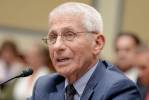Expert who helped identify UN as source of Haiti cholera outbreak urges new precautions
A University of Nevada, Reno, expert who played a key role in investigating a 2010 outbreak of cholera in Haiti that was later blamed on U.N. peacekeeping troops says the international organization needs to do more to ensure that it doesn’t contribute to the spread of infectious diseases.
Dr. James Wilson, director of the Nevada State Infectious Disease Forecast Station at the University of Nevada, Reno, was leading a nonprofit public health group after a devastating earthquake hit Haiti in 2010 when he and his colleagues identified U.N. troops from Nepal as the apparent source of the outbreak.
That spadework was part of an accumulation of data that ultimately led to the United Nations’ admission last week that its peacekeeping forces played a role in introducing cholera to the Caribbean nation – an acknowledgement that came the same day its immunity in a class-action lawsuit was upheld in court.
Wilson was working with a team from the nonprofit public health group Praecipio International when reports of the disease began trickling in.
“We really were questioning, ‘How the heck did that get there?’ because it just wasn’t in the peer-reviewed literature, and there were a lot of questions about what the heck is cholera doing in Haiti,” he said.
Wilson and his team ended up playing a key role in tracking the spread of the disease and determining its source.
They already had set up and were managing the Haiti Epidemic Advisory System, which used reports from agencies including the U.N. and Haiti’s Health Ministry to forecast the spread of infectious diseases.
The team was preparing to shut down when they began receiving reports of unusual diarrhea cases in October 2010. Within days, those cases were confirmed to be part of a growing cholera problem.
Wilson said most governmental agencies and nongovernmental organizations were understandably focused on preventing the potentially deadly disease from spreading and considered finding the source of the outbreak a secondary concern.
But he said he had suspicions about the source when he called the U.S. Centers for Disease Control and Prevention and was told the cholera was a type mainly found in Asia.
Soon afterward, a journalist captured footage of what appeared to be a sewage spill at a base where U.N. peacekeepers from Nepal were living, upstream of where the first cholera cases had been reported, according to a report compiled by Yale Law School programs and a Haitian nonprofit.
Soon the Praecipio team confirmed there had been a cholera outbreak in Kathmandu, prompting them to post online what were then merely suspicions that the outbreak in Haiti had been transmitted by the Nepalese peacekeepers.
Wilson said his group was one of the first to reach the conclusions that would become an international scandal.
“The role that we played was simply this: That we had plausible evidence pointing to that base,” he said.
Wilson credited Nepal for taking the investigation into the outbreak seriously but criticized the United Nations for denying responsibility in the matter for so long.
“The U.N. fundamentally should be held accountable,” he said.
He also has urged the U.N. to put measures in place to ensure peacekeepers’ nations have not recently been exposed to infectious diseases, especially as the world deals with outbreaks of Dengue fever and Zika virus disease.
“These are the kind of risk analyses that are going to have to be done from now on,” he said.
Contact Pashtana Usufzy at pusufzy@reviewjournal.com or 702-380-4563. Find @pashtana_u on Twitter.






























